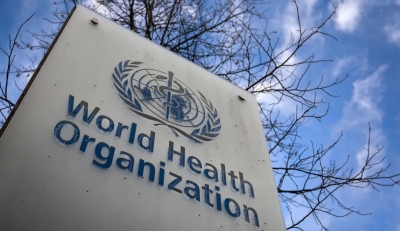Geneva, December 13, 2013 : .According to the World Bank and World Health Organization, more than half of a billion people worldwide have fallen into extreme poverty because of high healthcare costs.Two reports that were released as part of Sunday’s Universal Health Coverage Day highlight the disastrous impact Covid-19 has on the ability of people to access and pay for health care.
The report stated that the Covid-19 pandemic could stop two decades’ worth of progress toward universal health coverage.
The pandemic in 2020 disrupted the health system and stretched health systems to the limit as countries struggled with Covid-19’s impact.For example, the number of immunizations was reduced for the first time since ten years and there were more deaths due to TB and malaria.
In addition to making it more difficult for individuals to afford care, the pandemic also caused the most severe economic crisis since 1930s.Half a billion people had been forced into poverty before the pandemic.
This was due to payments made for their health care.According to the organisations, this number could rise significantly.
There is not enough time.”All governments should immediately resume efforts and accelerate efforts in order to ensure that every citizen can access healthcare services without fear of financial consequences,” Dr Tedros Adhanom Gebreyesus (WHO Director-General) stated in a statement.
He said, “This includes strengthening the public spending on social support and health, and increasing their emphasis on primary care systems that provide essential care near home.”
New WHO/World Bank reports warn that financial difficulties will increase as incomes drop, poverty increases, and government fiscal restrictions tighten.
“Even before the Covid-19 pandemic struck, almost 1 billion people were spending more than 10 per cent of their household budget on health,” said Juan Pablo Uribe, Global Director for Health, Nutrition and Population, World Bank.
“This is not acceptable, especially since the poorest people are hit hardest.Within a constrained fiscal space, governments will have to make tough choices to protect and increase health budgets,” he added.
In 2019, prior to the pandemic, 68 per cent of the world’s population was covered by essential health services, such as pre-and post-natal care and reproductive health services; immunisation services; treatment for diseases like HIV, TB and malaria; and services to diagnose and treat noncommunicable diseases like cancer, heart conditions, and diabetes.
But they had not made such advances in ensuring affordability.As a result, the poorest groups and those living in rural areas are the least able to obtain health services, and the least likely to be able to cope with the consequences of paying for them.
Up to 90 per cent of all households incurring impoverishing out-of-pocket health spending are already at or below the poverty line.This underscores the need to exempt poor people from out-of-pocket health spending, backing such measures with health financing policies that enable good intentions to be realised in practice, the report suggested.
-IANSrvt/shb/
#Covid #Extreme #poverty #care #Zen #Ford #Covid-19







